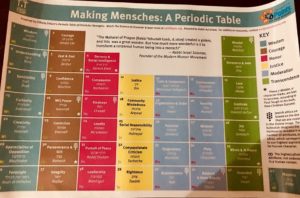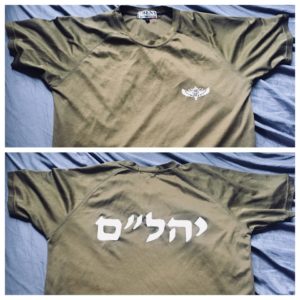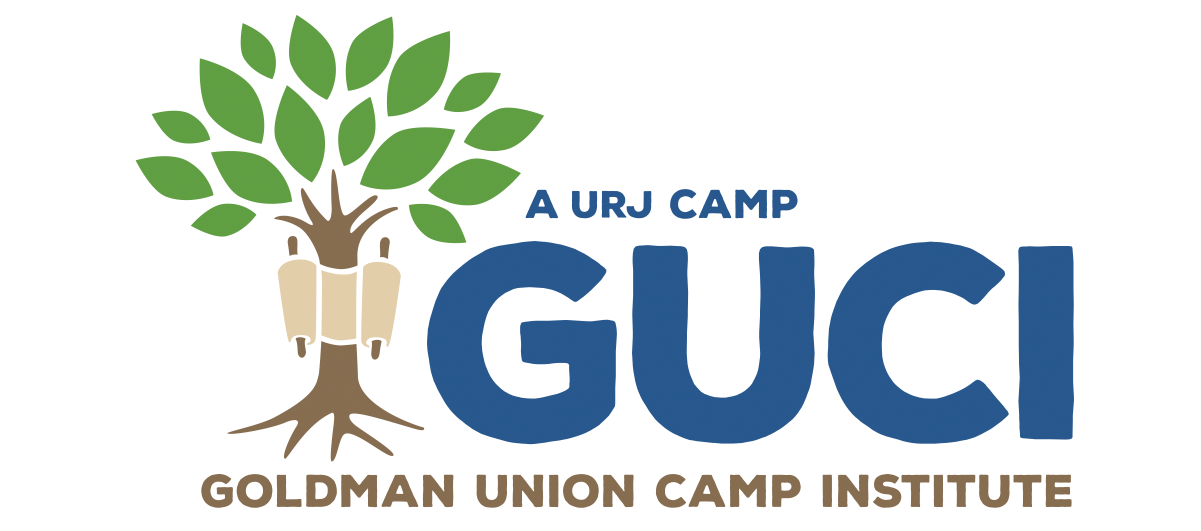By: Connor Graham
My name is Connor. I am neither Jewish nor do I work in a STEM field. So how did I end up at a Jewish science camp? What impact could I make there?
My interests have always lied in the arts, so I naturally excelled in those classes. Math and science never excited me, so my grades typically suffered. Although I never become a mathematician or marine biologist, it is a fact that the arts and sciences are closely linked. So I shouldn’t have been so surprised when I ended up at my first Jewish summer camp last year, URJ 6 Points Sci-Tech Academy (Sci-Tech), in Byfield, Massachusetts. I was referenced to this camp by the wonderful company called mainstages, an educational theatre company for children. Part of their job is to find the best teaching-artists and place them at summer camps, primarily to teach theatre.
When people ask me what my experience at Sci-Tech was like, I tell them there was an initial culture shock. If you grew up in a Jewish home, or spent time at a Jewish camp, do an experiment with me right now. Try remembering what it was like hearing the Birkat HaMazon for the first time. It may be difficult, because you may have grown up with that prayer for your whole life. But coming to Jewish camp as a non-Jewish adult, it was surprising for me. During the first week of camp, listening to prayers at services, hearing the songs in Hebrew, living with an Israeli roommate, I never thought I would never fit in, because I couldn’t relate to their experiences. I was given the daunting task of teaching magic, acting, improv, and mime classes to beginner level students, and connecting those topics to Judaism.
But I learned something that changed my entire outlook on Jewish camps and my place in them. The values promoted at Jewish camps aren’t strictly Jewish values, they’re human values. Sci-Tech focused on six key values, one for each point on the Jewish star. These values were Connection (kesher), Curiosity (sakranut), Discovery (taglit), Respect (kavod), Patience (savlanut), and the last one was a value of your choosing. Luckily, Sci-Tech provided a handy periodic table of values to help us choose the last one. The reason Sci-Tech promotes these values is made clear on their website: “Our Jewish values increase our appreciation and aptitude for science and technology, and that understanding the principles of science and technology heightens our approach to Judaism. Our community promotes the idea that science and Judaism can not only co-exist, but naturally complement each other. Skills such as critical thinking, creativity, teamwork, flexibility, and perseverance define our experience in both areas.” I latched onto these values as my way into Judaism. Not only did it make my job at camp easier, but it helped the campers who had never learned a magic trick or taken a theatre class bridge the gap between my world and theirs.

People ask me all the time, which camp is better, Sci-Tech or GUCI? The truth is that one is not better than the other, they’re just different. Naturally, while working on a boarding school campus, the food, housing, and facilities at Sci-Tech are all incredible. But each camp has their own unique community and traditions that make their camp special. As much as I love GUCI, I’ll never forget that I started my journey of working in Jewish camps at Sci-Tech. Although I’ve now grown accustomed to the different traditions at GUCI, I still bring traditions from Sci-Tech into this community. For example, campers ask me why I wear all white on Shabbat. I tell them that it was part of the tradition at Sci-Tech to wear white.
Sci-Tech has another wonderful tradition that happens every morning called Boker Big Bang. It consists of a science experiment, which ends with a bang, that typically ties in with a Jewish value or story. For Israel Day, the Israeli delegation asked me to help them in an extra special Boker Big Bang. Their theme for Israel Day was “influencers in Israeli pop culture”. As a magician, I’m familiar with the work of Uri Geller, the Israeli illusionist and self-proclaimed psychic. Geller is famous for his metal bending illusions, which look like real magic. But as a magician in a Reform-Jewish-science-and-technology community, I understood the importance of asking questions and forming my own perspective of the world around me. Although my Israeli accent needed work, the performance was terrific. The first part was a basic demonstration of spoon bending, followed by the Israelis trying it themselves. When they failed, we proceeded with the science experiment, which involved mixing liquid nitrogen and boiling water, resulting in a sudden burst of fog accompanied by loud BANG! When the fog cleared, the Israelis held up their spoons, showing that they had all bent in half, as if by magic. I was later told by the camp director that in the camp’s five year history, this was one of the best Boker Big Bangs that had ever occurred. A few days later, I was pulled aside by the Israelis during lunch and was gifted a t-shirt. It was a green shirt with a small logo on the front, and Hebrew writing on the back. They explained that the logo depicted a unit of the Israel Defense Force (IDF), Yahalom. The IDF are the military forces of the State of Israel, which consist of the ground forces, air force, and navy. “Yahalom” in Hebrew means “diamond” and is an abbreviation of “Special Operations Engineering Unit”. Yahalom has a substantial list of responsibilities, but one of them is the diffusing of bombs. As a matter of life and death, it’s difficult to draw comparisons from my own life to the brave work the IDF does everyday. But when my Israeli friends from Sci-Tech explained this to me, I couldn’t help but think of my work as counselor-specialist at camp. We worked on the frontline, diffusing emotional bombs 24/7.

You would think that having spent one summer at one Jewish camp, it would be much easier to assimilate to another Jewish camp without hesitation. Unfortunately, that wasn’t the case for me. Everyone at GUCI was welcoming as I slowly figured out how this camp operated. Even in the last week of the summer, I’m still figuring things out. Although the prayers and songs were familiar to me from Sci-Tech, becoming a new member of an outgoing community that’s 60 years old while being a shy person is difficult. I had my values to hold on to, but it was still a challenge to find my place at GUCI. I was once again unsure if I would impact GUCI like I had Sci-Tech. Once again, as if by magic, magic itself was there to help. Throughout my summer at GUCI I have performed multiple magic shows as lights-out programs for different cabins. At each show I will perform a magic trick, and then answer three or four personal questions before performing another trick, and so on. I’ve always closed these programs with one of my favorite magic tricks. It’s an old card trick in which a randomly selected and signed playing card is repeatedly lost in the deck, and then appears back on top. I let everyone in the cabins initial this card as I explain why this moment is special. These campers will never be in the same cabin with the same people ever again. They may come back to camp, but this cabin is unique because each of them makes it unique. Even when these campers get seperated in life (the card is lost in the deck), they’ll be able to remember the special moments their cabin shared and instantly be transported back home to GUCI (the card appears back on top). I gifted each cabin with their signed card and left them to sleep. During this last week of camp, I was informed that to celebrate GUCI’s 60th birthday they would be burying a time capsule not to be opened for the next twenty years. Each cabin was given the opportunity to place one object into the time capsule that would let future campers know what sort of special things they did that summer. A counselor from cabin 4 came to me this week to let me know that their cabin chose to put the signed card in the time capsule. In that moment, one things was clear. I knew I had made my impact on GUCI.
